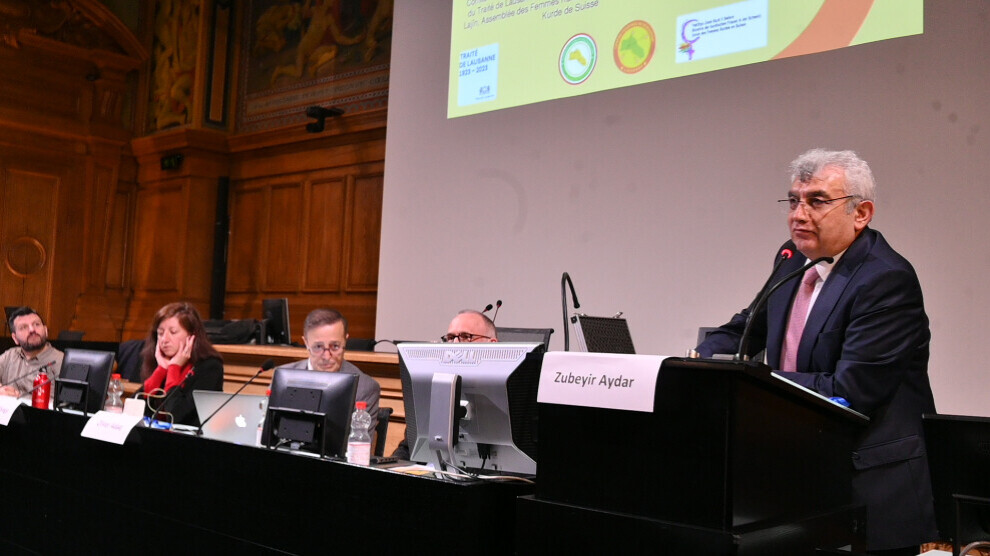Panel to mark the 100th anniversary of the Treaty of Lausanne
A panel was organized in the Palais de Rumine to mark the 100th anniversary of the Treaty of Lausanne.
A panel was organized in the Palais de Rumine to mark the 100th anniversary of the Treaty of Lausanne.

A panel titled "Lausanne 1923: Where were the Kurds?" was organized in the Palais de Rumine in Lausanne. Historians Hans-Lukas Kieser, Oliver Adad and Sedat Ulugana were among the panelists, as was Zübeyir Aydar, a member of the Executive Council of the KCK (Community of Kurdistan Societies). The event was moderated by Céline Misiego.
Swiss historian Hans-Lukas Kieser, who carried out research on the late Ottoman Empire and the history of Turkey and its relations with Europe and Switzerland, opened the panel. Kieser is Professor of Modern History, particularly of the Ottoman and post-Ottoman world, at the University of Zurich. He began his presentation with the question "Where were the Kurds when the Treaty of Lausanne was signed?" and explained that the Kurds were ignored and assimilated. He said that Turkish President Recep Tayyip Erdoğan now wants to revise the treaty that was signed a hundred years ago, because his real goal is to expand the borders of today's Turkey.
In his presentation, Zübeyir Aydar recalled that Kurdistan was divided into four different countries by the Treaty of Lausanne 100 years ago. For the Kurds, the agreement was a genocide. "We've had this experience for a hundred years," Aydar said, referring to the massacres of the past century and that are continuing today, as the ethnic cleansing of Afrin after the Turkish invasion in 2018 clearly shows.
Historian Dr. Oliver Adad gave a lecture on the importance of the Lausanne Treaty for the Christian minorities. He spoke about how the treaty affected the Assyrians and said that a massacre against Assyrians living in Hakkari in 1924 was carried out. Adad said: "In 1924, Assyrians living in the Hakkari region were either killed or exiled to Iraq. In these operations, thousands of people lost their lives and hundreds of villages were destroyed. Only a few villages survived. Again in 1924-25, Assyrians from the Urfa region were forcibly deported to Syria and mostly settled in Aleppo or went to Lebanon.”
The last speaker was Dr Sedat Ulugana, a historian and lecturer at the University of Berlin. He spoke about the role of England and France in the division of Kurdistan and said: "With the Kurdish freedom movement, the Kurds have re-entered the stage of history as a subject."